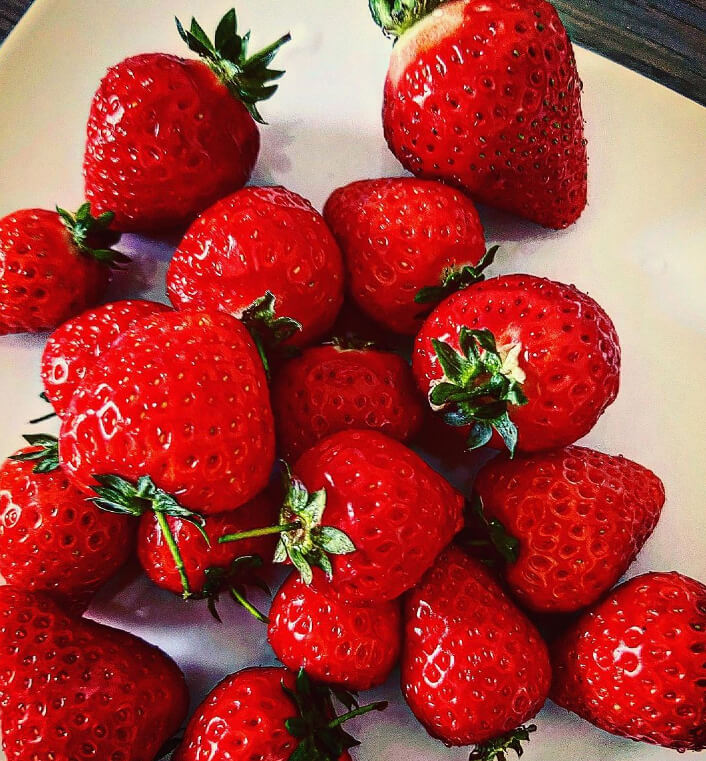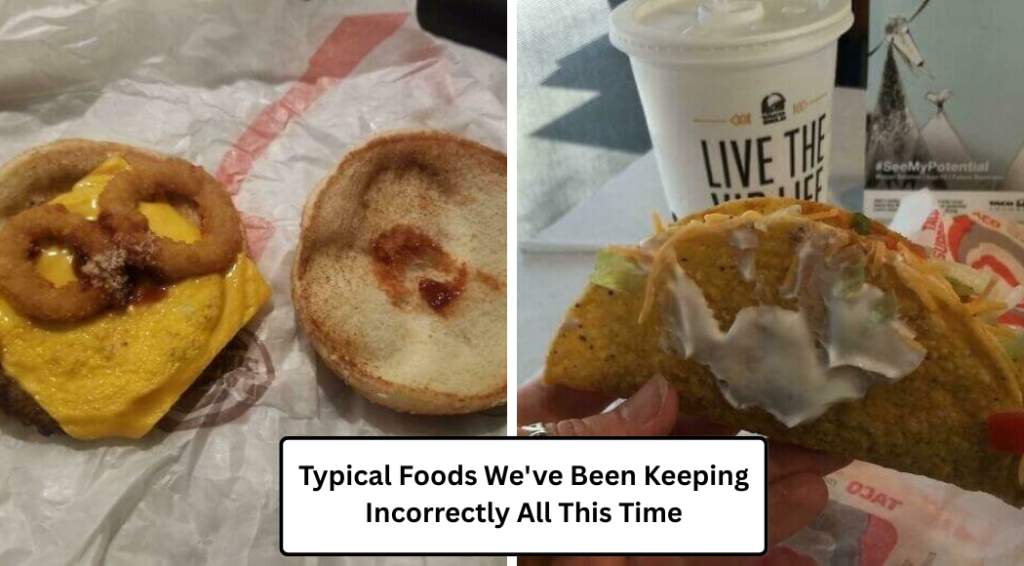We all have kitchen habits we follow without a second thought. But what if many of them are actually ruining our food? From bananas in the fridge to bread that goes stale too soon, small mistakes add up. Improper storage not only affects taste but can shorten shelf life and increase waste. In this article, we uncover Typical Foods We’ve Been Keeping Incorrectly All This Time. Get ready to rethink your pantry and fridge.
A Completely Vague Breakfast Wrap

This customer requested that the breakfast wrap they bought not include an egg in it. Sadly, the egg actually occupies the majority of the wrap’s space, so it appears somewhat empty without it. They most likely thought the wrap would have more ingredients, but it only had a few bits of bacon, cheese, and what appeared to be some mayo much like typical foods we’ve been keeping incorrectly all this time, where expectations and reality don’t quite match.
Bananas Don’t Belong in the Fridge

Most people think refrigerating bananas keeps them fresh longer. The banana’s cell walls are harmed by the cold, though. This causes the peel to blacken quickly and affects the texture. Bananas ripen best at room temperature. Once fully ripe, you can refrigerate them to slow further ripening. But ideally, keep them on the counter—because bananas are one of those typical foods we’ve been keeping incorrectly all this time.
This Barbecue Sauce Is Not Quite “Extra”

This burger was lacking in many ways. This customer, like the one before them, requested a little extra in their burger to make it more delicious. Thus, they requested barbecue sauce, which is their favorite! They eagerly accepted the burger, opened the packaging, and were astounded at the quantity of “extra” barbecue they had received. Alas, better luck the next time.
Bread Shouldn’t Be Stored in the Fridge

Many store bread in the refrigerator to prevent mold. Ironically, cold temperatures cause bread to go stale faster due to starch retrogradation. This makes your bread dry and crumbly in no time. Instead, store it in a breadbox or a cool cupboard. Freeze extra loaves if needed for long-term storage. It’ll taste fresher when thawed than if refrigerated.
A Surprised Blueberry Muffin

Without a doubt, this blueberry muffin’s top looks incredibly delicious! This individual was anticipating something similar across the entire muffin, but the blueberries and crumble look quite good on the top. However, they discovered that the remainder of the muffin was just your typical vanilla delight when they sliced it in half to make eating it easier. What a letdown!
Tomatoes Hate the Cold

Refrigerating tomatoes ruins their flavor and texture. Tomatoes become mealy when exposed to cold air, which stops the ripening process. The natural sugars and acids that give tomatoes their flavor also diminish in the fridge. Keep them out of direct sunlight on the countertop. Let them ripen naturally, and eat them within a few days. This brings out their full taste.
The Meaning of Sour Cream on the Side Literally

It appears that this restaurant takes orders quite literally, and the whole situation was too hilarious for this pair to bear. The wife figured it wouldn’t hurt to have a little extra sour cream when they went out to lunch. When she requested “extra sour cream on the side,” however, someone took her request too literally and put extra sour cream on the taco’s side.
Onions Need Air, Not Plastic Bags

Storing onions in plastic bags traps moisture, leading to mold and sprouting. They need a cool, dark, and ventilated space to stay fresh. A mesh bag or basket in your pantry is perfect. Potatoes release gas and moisture, so keep them away. This prevents spoilage of both. Never refrigerate whole onions—it softens them and ruins the texture.
A Common Expectation Compared to Reality

On social media, we have all likely seen countless posts comparing expectations and reality, highlighting restaurants that serve food that differs greatly from what they promote. Because the tendency is so widespread, people can’t help but relate to others who have gone through similar things, which has made it a massive joke. I hope the enormous box of nachos was at least passably delicious!
Coffee Stays Best in Airtight Containers, Not the Freezer

Many believe freezing coffee preserves its freshness. In reality, moisture from the freezer can ruin the beans. Coffee easily absorbs odors and flavors from other foods. The best storage is in an opaque, airtight container at room temperature. Keep it away from heat and light. This keeps the aroma and flavor intact for longer.
To keep berries ripe, use vinegar

All types of berries are the ideal year-round snack, but if they are not consumed immediately, they frequently become moldy and mushy. Opening the container and seeing that all of your berries have gone bad before you had a chance to enjoy them is the worst thing ever. Combine one part vinegar (white or apple cider) with ten parts water to preserve your berries for the week. Drain, rinse, and place the berries in the refrigerator after swirling them around in the mixture. You won’t taste the vinegar because the water dilutes it enough. Strawberries will keep for nearly two weeks as a result.
Garlic Shouldn’t Be Refrigerated

When garlic is kept in the fridge, it starts sprouting early and becomes rubbery. Cold air speeds up moisture build-up, which encourages mold. Store garlic bulbs in a dry, dark place with good air circulation. A mesh bag or open basket works well. Only separate cloves when you’re ready to use them. Whole bulbs last longer this way.
Never Fear That Your Lemons Will Go Bad

You are unlikely to utilize a whole lemon at once unless you are chopping lemons for shots or preparing lemonade. You should be aware that there are numerous methods to preserve lemons if you frequently find yourself discarding portions of them that have become even more sour than they were initially. Use a toothpick to fix the sliced lemon back onto the half you didn’t use, rather than discarding the ends. Lemons can also be kept oxygen-sealed by dipping them in paraffin wax. Additionally, lemon slices can be frozen for use as ice in beverages at any time.


